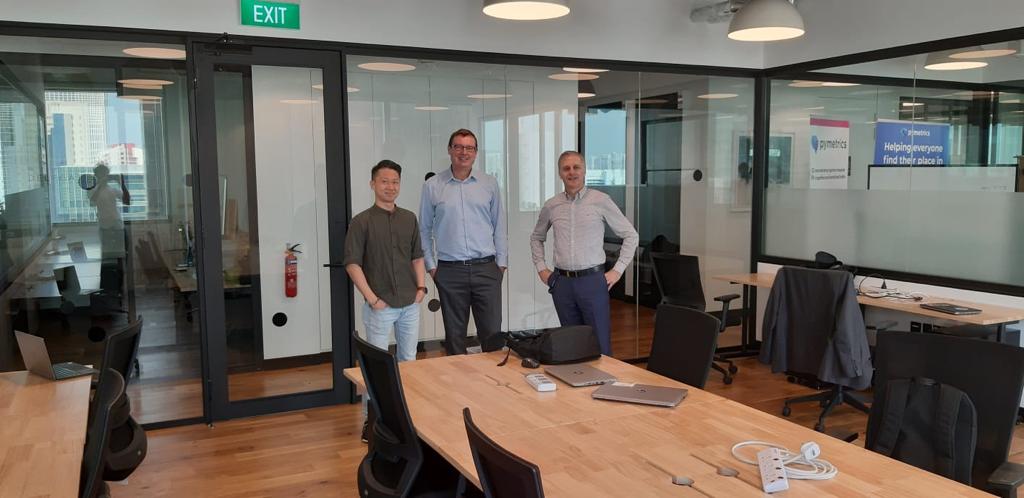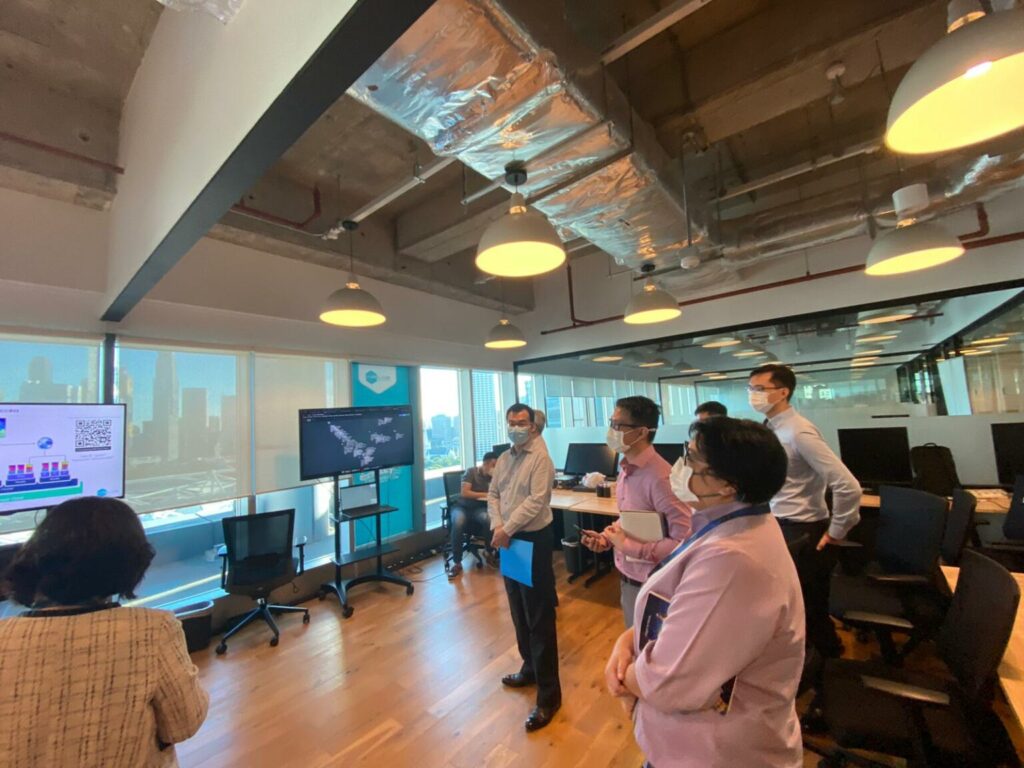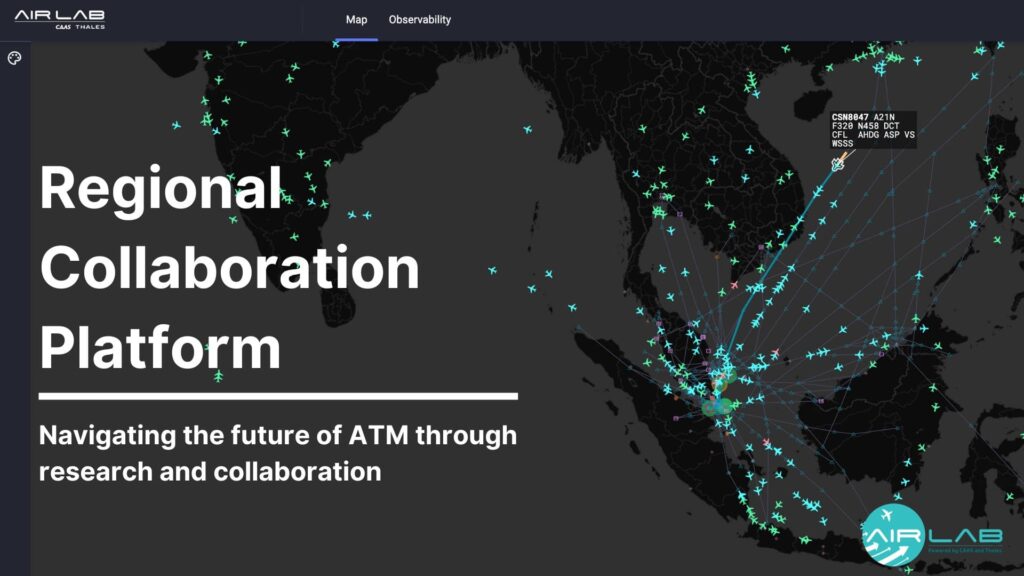Next-gen open platform techs like AIR Lab’s Open ATM Architecture lead the way in disrupting Air Traffic Management systems and demonstrating resilience to support ATM innovation.
The changing global ATM landscape accelerates the need for technology transformation in the future ATM system.
With skies being increasingly complex and congested even before COVID-19, the need for system agility and modularity to address future demands such as cybersecurity and future operational concepts are more critical than ever. Furthermore, the advent of new and advanced technologies bring new opportunities for the future ATM system in coping with the changing airspace and traffic demand.
However, the notion of transforming the ATM system has had its challenges for years, with conservative and complex procedures to ensure globally harmonised operations being the bugbear.
Research group Florence School of Regulation explains that the slow modernisation of ATM systems was mainly due to the single-door regulators that predominantly shaped the systems. The massive requirement to unify standards and the relatively small market of ATM tech also held back any notable innovation. The group also says both institutions and technology must co-evolve to effectively regulate tech disruption and deploy all kinds of innovation within the wide scope that ATM covers.
COVID-19 may have changed all that
When COVID-19 hit, air travel demand collapsed as passenger volumes plunged. In April 2020, global passenger revenue saw a 55 per cent drop from last year. Still, the mission to innovate air traffic management (ATM) systems has not lost its significance amid the pandemic. And with air traffic expected to resume as countries gradually open their borders, it is important to leverage innovation during this period to accelerate the transformation of ATM to prepare us for the future.
In addition, the people continue to build on their innovation development despite the challenges posed by the pandemic – thanks to the underlying cloud-based infrastructure of the Open ATM Architecture. This also provides a proven case on the resilience of such architecture even during a pandemic.

A Collaborative Working Model with the Aviation Innovation Research (AIR) Lab
The Civil Aviation Authority of Singapore (CAAS) and French aerospace firm Thales launched a S$30 million research lab in Singapore last September to help propel the digitisation of current ATM systems and revolutionise their overall efficiency.
Operational since early this year, the AIR Lab is applying deep tech like Artificial Intelligence (AI), big data, cloud-native tech, and machine learning, to address challenges in airspace management and ATM tool advancement.
According to Jean Ferré, Thales Vice President of Airspace Mobility Solution, AIR Lab’s strategic location and partnership “creates the ground for an unmatched opportunity to co-create between a leading Air Navigation Service Provider in the world (CAAS) and a leading ATM industry player (Thales).”
AIR Lab also puts cybersecurity and sustainable air traffic control in its agenda to address digital safety and environmental concerns in the aviation ecosystem. For Kevin Shum, Director-General of CAAS, these technological outputs can “become decision support tools for our controllers to aid them in making split-second decisions.”
Supported by the Aviation Transformation Programme (ATP) under the National Research Foundation, AIR Lab provides an open platform for multiple stakeholders in the ATM value chain; including AI experts, software engineers, local startups, and enterprises, to collaborate and overcome technological challenges faced by conventional aviation management.
The goal, according to AIR Lab Director Herve Moalic, is to “leverage this collaboration to accelerate the transformation of ATM.” The collaborative aspect is of such importance that even at the onset of COVID-19, the team maintained its pace thanks to its cloud-native infrastructure which was already in place.
“The challenges we face today, that can be addressed in Singapore, are to allow the migration of traditional aviation paradigms to cloud and data technologies, while maintaining a high level of safety and cybersecurity,” said Mr Ferré.
Mr Shum also added that AIR Lab efforts in developing open ATM System Architecture and providing cost-effective ATM solutions are very commendable.
“This will be the key enabler to allow quick integration of the new innovations that are developed into an Air Traffic Management System. This will give us the ability to react quickly and implement innovative changes once they are ready,” said Mr Shum.

AIR Lab’s Open ATM To Nurture Talents
Open ATM architecture will benefit the entire ATM ecosystem by seamlessly integrating multiple data like flight trajectories, and flight planning. The open platform allows co-development between ATM stakeholders and domain experts to build a more advanced ATM tool with deep technologies.
The AIR Lab also aims to accelerate the next-gen of local ATM experts and nurture their talents. The platform supports collaborations with agile ‘test-and-learn’ methodologies so they can develop products faster.
Mr Moalic highlighted the importance of having local startups in Singapore that specialise in deep tech as potential partners. He further explained that the open platform would provide value-adding assets like exclusive data and enable tech development in the aviation business.
“This is a rather unique initiative in the Aviation Ecosystem. Singapore is both a business and innovation ecosystem as well as a gateway to the world. Having key leaders such as Thales and CAAS jointly collaborating for the long term is a recipe for success.”
The AIR Lab is expected to operate for an initial period of three years and is co-located with the Thales Digital Factory in Singapore. For further details about AIR Lab, who they are and what they do, please visit their website HERE.
Partnerships with startups are one of the major keys for AIR Lab’s Open ATM platform to expand their scopes in deep tech sectors like AI, automation, speech recognition, and data analytics.
In closing, Mr Ferré stated that “The AIR Lab can be an opportunity to seize for innovative startups that are willing to partner. Not only is this a time to participate in the excellence of Singapore’s own ATM ecosystem, but whatever we do together in Singapore thanks to AIR Lab can be scaled at a global level.”
– –
This article is produced by the e27 team, sponsored by Thales




